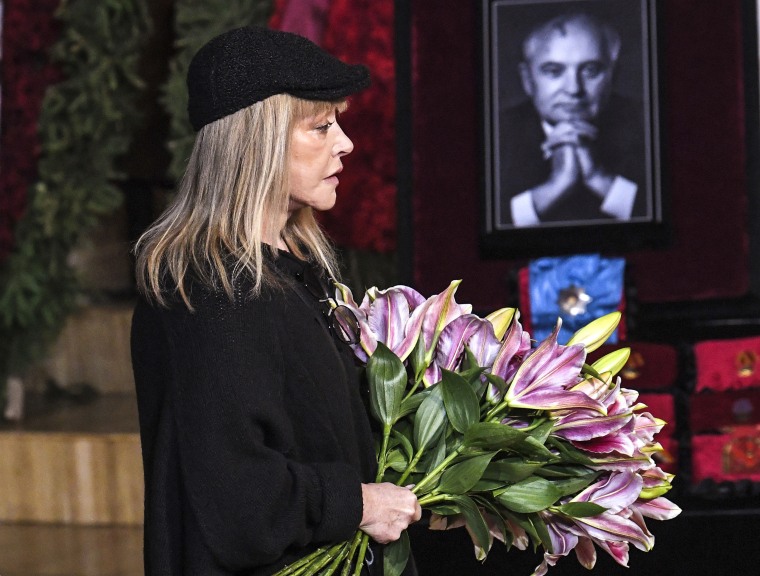Russian prosecutors have asked the justice ministry to consider labelling Alla Pugacheva, the queen of Soviet pop music, as a “foreign agent,” a move that would officially designate Russia’s most famous star a foe of the Kremlin.
Pugacheva, known across generations for hits such as the 1982 song “Million Scarlet Roses” and the 1978 film “The Woman who Sings,” has expressed disgust with the Ukraine war.
In 2022, she said the war was killing soldiers for illusory aims, burdening ordinary people and turning Russia into a pariah. Earlier this month, the 74-year-old said that no normal person would return to Russia. She is currently abroad.
Vitaly Borodin, an activist who heads an anti-corruption group and who regularly appears on state television, submitted an official request to recognise Pugacheva as a foreign agent.
Then Borodin published a letter from the prosecutor general’s office showing that a request had been made to the justice ministry to consider that.
Kremlin spokesman Dmitry Peskov said he had heard no official statements about the issue. Pugacheva, thought to be in Cyprus, did not immediately comment.

Officially labelling her a “foreign agent” would underscore the rift between the Kremlin and many — but not all — of the cultural icons of Soviet and post-Soviet Russia over Ukraine.
Such a step would almost certainly need approval from the Kremlin. It has yet to opine in public on Pugacheva and could still stop the process.
The New York Times in 2000 described her as “the goddess of Russian pop, Moscow’s Tina Turner with a hint of Edith Piaf, whose songs have given voice to the yearnings of millions.”
Shot, a Russian media outlet with close ties to the security services, said an official announcement may be made on her 75th birthday on April 15.
Long list
Being labelled as a “foreign agent” is often the first sign of serious trouble from authorities in Russia. There are 787 organisations and people listed as such.
The label has negative Soviet-era connotations and its bearers have to place it prominently on all content they publish. They also face arduous financial and bureaucratic requirements.
For many opponents of President Vladimir Putin, though, the designation is considered a badge of honour — evidence they stood up to a leader they cast as a dictator and say has led Russia towards ruin.
Supporters of Putin say that the pro-Western cultural elite which grew up after the 1991 fall of the Soviet Union is being cleared out and replaced by patriotic singers, writers and artists who will ensure Russia remains sovereign.
Pugacheva came to the attention of Putin supporters for taking six days from Friday’s gun attack on Crocus City Hall to make a comment in public.
“Grief should be in your soul, not in Instagram,” she posted on Instagram on Thursday.
Pugacheva was also criticised for apologising to a Tajik singer who wept over the “public torture” of the Tajik suspects detained for the attack.
Some of the suspects were shown being interrogated beside a road. One was shown in unverified footage having part of his ear cut off and stuffed into his mouth.
Pugacheva in 2022 even asked for the state to label her a foreign agent in solidarity with her husband, TV comedian Maxim Galkin, who was put on the list that year.
Pugacheva has in the past been feted by both Putin and his predecessor Boris Yeltsin. When Mikhail Gorbachev died in 2022, she praised the last Soviet leader for allowing freedom and rejecting violence.
After Putin ordered troops into Ukraine in 2022, Pugacheva left Russia. She has Israeli citizenship and has come back for some periods.











